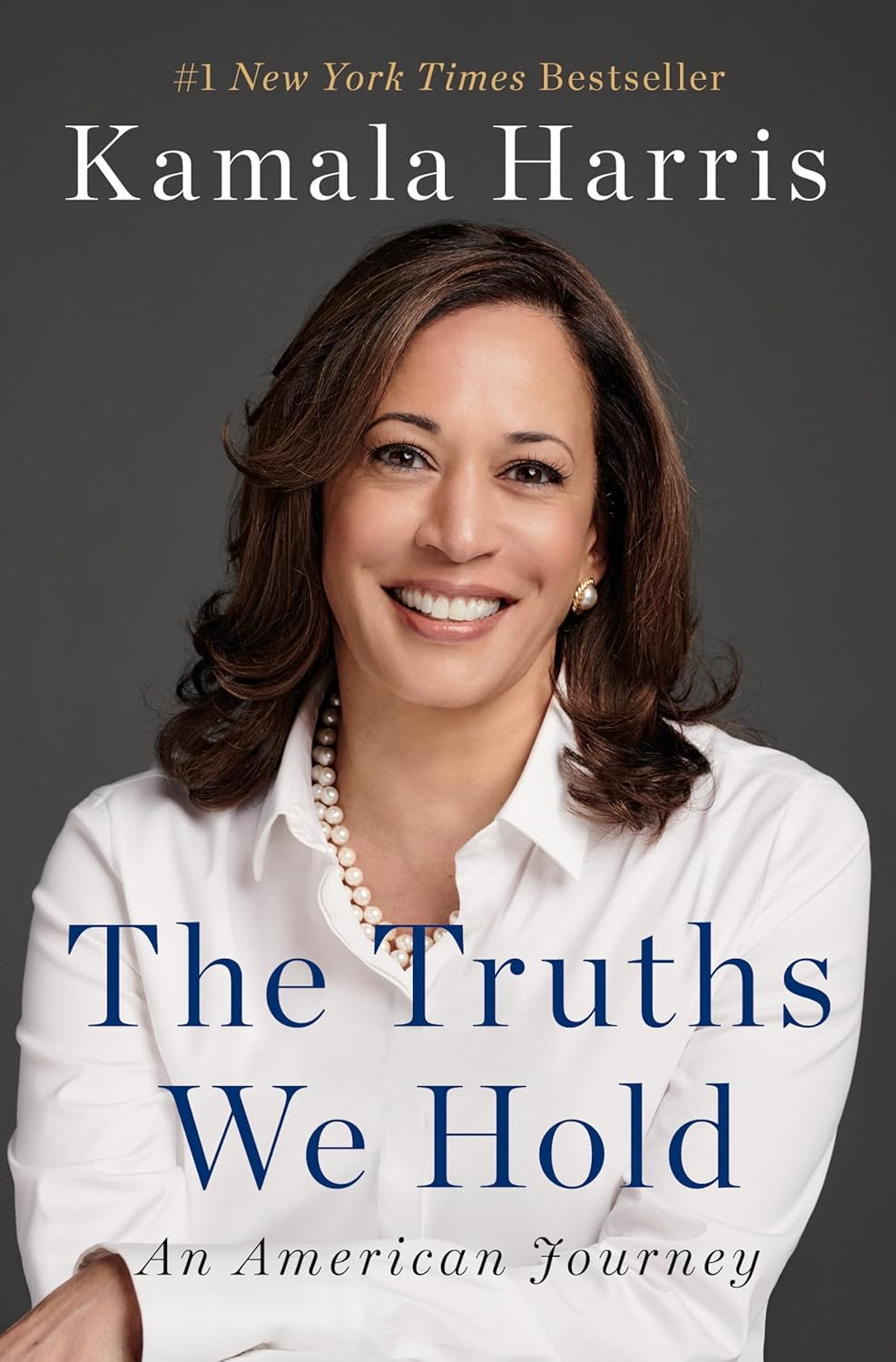Book Summary
The Truths We Hold: An American Journey is Vice President Kamala Harris’s deeply personal memoir that traces her path from childhood to becoming the first woman, Black American, and South Asian American to hold the vice presidency. The book blends autobiographical elements with policy discussions, offering readers insight into Harris’s formative experiences as the daughter of immigrant activists, her groundbreaking career in law enforcement, and her vision for America’s future. Harris recounts pivotal moments from her time as San Francisco District Attorney, California Attorney General, and U.S. Senator, framing each chapter around core “truths” that have guided her life and work.
While structured as a memoir, the book functions equally as a political manifesto, with Harris using her personal narrative to articulate her positions on criminal justice reform, healthcare, immigration, and economic inequality. The tone oscillates between inspirational and pragmatic, reflecting Harris’s prosecutorial background and her ability to connect policy with human impact. Readers will appreciate how Harris weaves together stories of her multicultural upbringing with professional challenges, creating a portrait of a leader shaped by both personal conviction and public service.
Key Themes
Justice and reform emerge as central themes, with Harris detailing her innovative approaches to criminal justice as California’s Attorney General. She defends her record while acknowledging systemic flaws, advocating for “smart on crime” policies that balance accountability with rehabilitation. The memoir particularly shines when Harris discusses her work protecting homeowners during the foreclosure crisis and combating transnational gangs, demonstrating how she applied legal expertise to real-world problems affecting vulnerable communities.
Identity and representation form another crucial thread, as Harris reflects on being “first” in many roles and the responsibility that comes with breaking barriers. She shares poignant anecdotes about cultural duality—like her mother’s airport customs rituals contrasting with her husband’s relaxed approach—that illuminate the lived experience of being a woman of color in America. These personal revelations ground the book’s political content, making abstract policy debates feel intimately connected to Harris’s life story.
What Makes It Unique
Unlike traditional political memoirs that either glorify achievements or settle scores, The Truths We Hold adopts a problem-solving framework. Each chapter presents a societal challenge, analyzes its roots through Harris’s professional encounters, and proposes solutions—mirroring how a prosecutor builds a case. This structure makes complex issues like healthcare financing or immigration court backlogs accessible while showcasing Harris’s analytical rigor. The book stands out for its refusal to dichotomize personal and political; Harris’s Sunday family dinners receive as much thoughtful attention as her Senate questioning of Brett Kavanaugh.
The memoir also distinguishes itself through its intergenerational perspective. Harris frequently references her activist parents and historical figures like Thurgood Marshall, positioning her work as part of a continuum rather than individual accomplishment. This lends weight to her calls for collective action while avoiding the self-aggrandizement common in political autobiographies. Readers seeking a conventional tell-all may find the narrative restrained, but those interested in how identity informs governance will appreciate Harris’s disciplined focus on the “truths” promised in the title.
Reader Reactions
Reviews highlight the book’s effectiveness as both memoir and political statement. Many readers praised Harris’s ability to “expertly toggle between personal narratives and up-close accounts of her real-life work,” noting that this integration makes her “seem authentic.” The Los Angeles Times called it “a life story that genuinely entrances,” while the San Francisco Chronicle found it “revealing and even endearing.” Political observers particularly appreciated Harris’s anticipation of critiques about her prosecutor background, with one reviewer noting she “presents herself as prepared to deflect the barbs that will certainly come her way.”
Some critics argued the prose “rarely sparkles” and wished for deeper introspection about certain career decisions. A Guardian review described it as “serviceable” rather than literary, comparing it unfavorably to Barack Obama’s memoirs. However, even skeptical reviewers acknowledged the book’s power as a campaign document, with NPR observing that Harris “efficiently makes her case, like the prosecutor she is.” The audiobook version, narrated by Harris herself, has drawn praise for adding emotional resonance to key passages.
About the Author
Kamala Harris made history as the first female, first Black, and first South Asian Vice President of the United States. Born in Oakland to a Jamaican father and Indian mother, she graduated from Howard University and UC Hastings College of Law before embarking on a trailblazing legal career. As San Francisco District Attorney and California Attorney General, Harris gained recognition for taking on big banks, for-profit colleges, and transnational gangs while implementing progressive reforms like implicit bias training for police. Her 2016 election to the Senate made her only the second Black woman to serve in that chamber.
This background directly informs The Truths We Hold, as Harris draws extensively from her experiences at each career stage to illustrate her governing philosophy. The memoir reflects her unique position as both an insider who reformed systems from within and an outsider who challenged established power structures. Harris’s bicultural upbringing and barrier-breaking career lend credibility to her arguments about representation’s importance in democracy—a theme that resonates throughout the book.
Memorable Quotes
“The American people have not given up on the American Dream. … But when you can’t sleep at night, how can you dream?”
– Harris on economic anxiety and policy priorities
“When activists came marching and banging on the doors, I wanted to be on the other side to let them in.”
– On her approach to criminal justice reform as a prosecutor
“We must make right the wrongs that this administration has committed in our name.”
– A recurring call to action throughout the book
